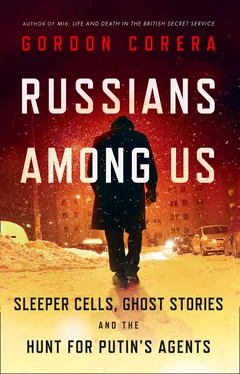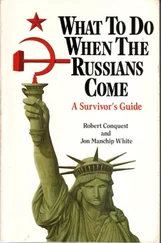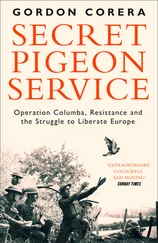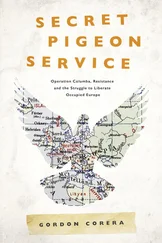When the 1991 coup began, a legendary figure made a surprise reappearance in the corridors of Directorate S. Yuri Drozdov had retired a few months earlier as the head of the directorate. But in August as the tanks rolled, he returned to the duty room, with a sparkle in his eye. “We’ll restore order in the country! We’ll clear up the mess. It’s about time!” he told surprised staff. Lean, with a long face, Drozdov had entered Berlin with the Red Army at the end of World War II and by 1962 was a KGB illegal in Germany. Drozdov escorted American lawyer James Donovan across East Berlin to organize one of the most famous spy swaps of the Cold War, when the illegal Rudolf Abel was exchanged for captured American U2 pilot Gary Powers. He then spent four years in New York before in 1979 becoming head of Directorate S, where he ran the illegals for more than a decade. But in his final months in charge, he had found the uncertainty and confusion surrounding the Soviet Union deeply unsettling.
The illegals around the world had become agitated as they watched news of the political divisions and disarray back home. These men and women had dedicated their lives to an idea that communism would transform the world. But what if that was now disintegrating? At an operational meeting before his retirement Drozdov had revealed the depth of their concern. A few illegals, he said, had broken every rule and written directly to him asking what was going on. “Personal letters are being written to me,” he told his astonished subordinates. “They ask what is happening in our motherland. They say they can’t understand anything! They ask who it is they are working for. Is it for the Soviet Union or for Russia? For the Communists or for the ‘new democrats’?” He explained that the illegals feared that the new political leaders might betray them. Some said they would not maintain contact with the center for their own safety until the situation was resolved. They would continue with their long-term missions but avoid short-term scheduled contacts. “I have received not just one letter like this but several,” an exasperated Drozdov explained. “What have they been doing? Have they held their own Party congress?” he joked.
The illegals were the glory of the KGB. Drozdov’s greatest nightmare was that this intelligence capability—so prized and so patiently built—could be lost. He was sufficiently worried that he began destroying some of the documentation so it could not fall into the wrong hands. Fear may have driven him to back the August coup. But Drozdov’s return, like the coup itself, would be short-lived.
Out in the city, the CIA officers sent out by their chief of station began reporting back. They realized their KGB minders were absent and so for the first time, they took the risk of meeting contacts quickly on street corners without the usual careful preparation. They visited the airport and TV stations—all the places you would seize first in a well-planned coup. But no one had secured them. The whole thing was starting to look like something a group of desperate men had cooked up quickly after too many vodkas rather than a well-oiled operation. Crowds of ordinary people were taking to the streets as a light drizzle fell. Barricades were going up. The plotters had failed to arrest Boris Yeltsin and he would become the focal point of opposition. After decades of the tightest control, everything seemed to be unraveling at bewildering speed. The CIA officers could see the army waver. The coup was a last, desperate attempt to prevent the demise of the communist system. Instead the plotters had hastened its death. Gorbachev flew back to Moscow to reassert control. The plotters were arrested. But the chaos did not end as the state seemed to unravel.
Shebarshin was summoned to see Gorbachev. He was offered the temporary chairmanship of the KGB. As he walked out of the meeting, he could hear protesters outside. He knew what a revolution sounded like from his time in Iran in 1979. He took an underground tunnel to the Lubyanka in central Moscow—the imposing headquarters of the KGB. It was eerily quiet inside. As the light faded, Shebarshin could see Dzerzhinsky Square out of the window. After the 1917 revolution Felix Dzerzhinsky had led the Cheka. Its mission had been to use whatever means necessary to preserve the hold of the Communist Party against domestic and foreign counterrevolutionary forces. Dzerzhinsky led a “Red Terror” in which countless were killed and yet the KGB had built a cult of personality around him. To this day his successors—who portray themselves as guardians of the state battling against subversion—are known as “Chekists.”
That August evening protesters gathered around the ten-ton statue of Dzerzhinsky in the square. For them it was the symbol of oppression. There were excited speeches and slogans, an air of the impossible suddenly becoming possible. The crowds maneuvered a crane into place. “Death to the KGB,” some shouted. There was at least one undercover CIA officer among the crowd. Despite the suspicions of the KGB that they were manipulating events, the Western spies in Moscow were doing no more than observing, astonished as history unfolded before their eyes. Shebarshin forced himself to watch from a fifth-floor window as Dzerzhinsky was taken firmly by the neck. The man who had overseen countless summary executions remained expressionless as he prepared for his own. His iron legs seemed to give one last shudder and then he toppled. A man in a white shirt stood on the empty pedestal and shook his fist triumphantly in the air. For the crowd it was a moment that signified the end of the old order. The KGB was dead. Wasn’t it? In the early hours of the morning, a few KGB officers snuck out of the Lubyanka and left a message on the empty pedestal. “Dear Felix, we are sorry that we couldn’t save you. But you will remain with us.”
The next day, staff inside KGB headquarters were ordered to seal the doors. Knowledge is power for a spy service, and for the KGB it resided in its files that listed the names of informers and agents at home and abroad. These had to be protected at all costs. When East Germany had seen its revolution in 1989, the offices of its security service, the Stasi, had been overrun. There had been frantic shredding of documents. In Dresden, a young KGB officer on his first foreign posting had watched in fear as the crowds gathered outside his office. He had dreamed of joining the KGB since he was a teenager. He called a Red Army tank unit to ask for protection. He expected them to crush the protests, but they explained they were still awaiting orders. “Moscow is silent,” he was informed. He was shocked. It was time to destroy the files. “I personally burned a huge amount of material,” the KGB officer later recalled. “We burned so much stuff that the furnace burst.” That officer’s name was Vladimir Putin. He would never forget what happened when crowds rose up and Moscow was silent.
In August 1991, the KGB in Moscow feared the same fate as the Stasi. Shebarshin opened his safe and pulled out incriminating papers so they could be destroyed. He also took out his service pistol—a Makarov 9-millimeter semiautomatic. He carefully oiled and cleaned it. He gave the order to ship files out to a secure location. Shebarshin was then informed that his time as head of the KGB would be only a single day. Gorbachev returned him to head of the First Chief Directorate and installed a liberal reformer as his superior, with a mission to break up the KGB.
Thousands of miles away, in Langley, Virginia, the cables from their team on the ground were being pored over for every detail. No one in the CIA had seen the coup coming and now their opponent was down. But were they out?
“Their dicks are in the dirt,” the head of the CIA’s Soviet division, Milt Bearden, used to tell his staff. Bearden was a straight-talking Texan with a swagger to match who was head of the CIA’s Soviet and Eastern Europe division. The division was the powerhouse of the agency. Its inner sanctum would become known as “Russia House”—a reference, like so much in the spy world, to a John le Carré novel. But at the moment of triumph, it was a house divided. Many officers had spent their entire career having been working against the Soviet target, but Bearden was an outsider, his last job running operations in Afghanistan. That meant he was viewed with suspicion by the insiders. There were deep divisions over how to deal with the old enemy. Bearden’s view was that times had changed and that liaison—sitting down with the other side’s spies—offered new opportunities. That view was met with deep resistance from those who thought it was naive to think their adversary was changing. The “insular subculture didn’t want to let go of the Cold War,” Bearden would later write of his critics; “it had been too much fun.” Over the decades to come, and even as it moved away from the center of CIA operations, Russia House would always retain its own unique identity, its work sealed off from everyone else behind walls of secrecy. Its critics would say it was trapped in the past, but inside its walls, its inhabitants believed they were the only ones who understood that, whatever changed on the surface, the opponent they faced off against was patient, persistent, and aggressive, and only they fully appreciated the danger. At the time of the coup they thought Bearden did not get it.
Читать дальше












